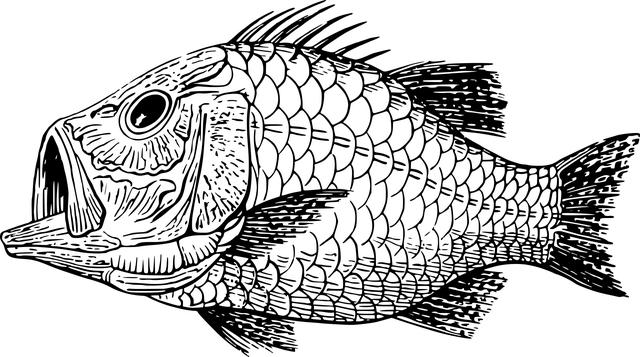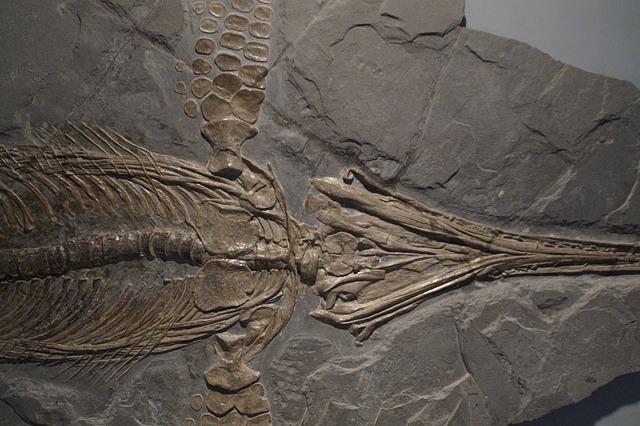The World of Ichthyosaurus: Vanished Swimmer
- Introduction
- Appearance of Ichthyosaurus
- Habitat and Behavior
- The Extinction of Ichthyosaurus
- Evolutionary Significance
Ichthyosaurus, a fascinating marine reptile that roamed the prehistoric oceans, holds a unique place in evolutionary history. The term Ichthyosaurus translates to "fish lizard," reflecting its aquatic lifestyle and reptilian ancestry. Let's dive deeper into the world of this vanished swimmer.
Appearance of Ichthyosaurus
Ichthyosaurus is instantly recognizable for its sleek, dolphin-like body adapted for efficient swimming. With a streamlined shape, flippers resembling those of modern dolphins, and a long toothed snout, Ichthyosaurus was a swift and agile hunter in the ancient seas.
Their eyes were large, suggesting excellent vision for hunting prey in murky waters. Fossil evidence also indicates that some species of Ichthyosaurus may have had a blubber layer similar to that of marine mammals, providing insulation in cold ocean depths.

(Image: Pixabay/@OpenClipart-Vectors)
Researchers believe that Ichthyosaurus exhibited countershading, with darker pigmentation on their backs and lighter undersides, aiding in camouflage from predators and prey alike.
Habitat and Behavior
Ichthyosaurus thrived during the Mesozoic Era, primarily inhabiting the warm, shallow seas that covered vast areas of the Earth millions of years ago. Their fossilized remains have been found in regions that were once part of the supercontinent Pangaea, showcasing their widespread distribution.

(Image: Pixabay/@nathalieburblis)
These marine reptiles were apex predators of their time, preying on fish, cephalopods, and other marine creatures. Their ability to give birth to live young instead of laying eggs, a trait uncommon among reptiles, suggests a semi-aquatic birthing process akin to modern whales.
Ichthyosaurus likely exhibited social behaviors, hunting in groups or pods to increase their chances of success in capturing prey. Studying fossilized Ichthyosaurus skeletons has provided valuable insights into their social structures and possible migratory patterns.
The Extinction of Ichthyosaurus
The decline and eventual extinction of Ichthyosaurus remain a subject of scientific debate and investigation. While once a dominant predator in the ancient seas, Ichthyosaurus disappeared from the fossil record around the end of the Mesozoic Era.

(Image: Pixabay/@4040952)
Several theories have been proposed to explain their extinction, ranging from environmental changes, competition with newly evolved marine species, to potential impacts from mass extinction events such as the asteroid impact that marked the end of the Cretaceous period.
Studying the timing and circumstances surrounding the extinction of Ichthyosaurus provides valuable lessons for understanding the fragility of ecosystems and the potential effects of rapid environmental changes on marine lifeforms.
Evolutionary Significance
Despite their extinction, Ichthyosaurus left a lasting impact on the evolutionary history of marine reptiles. Their adaptations for an aquatic lifestyle, including limb modifications for swimming and live birth reproduction, foreshadowed the emergence of modern cetaceans such as whales and dolphins.

(Image: Pixabay/@51581)
By studying the fossilized remains of Ichthyosaurus and comparing them to existing marine species, researchers gain insights into the gradual transitions that occurred as reptiles returned to the sea, evolving to occupy new ecological niches and exploit marine resources.
Conclusion
Ichthyosaurus, the vanished swimmer of ancient oceans, continues to captivate researchers and enthusiasts alike with its unique adaptations and evolutionary significance. By unraveling the mysteries of these prehistoric marine reptiles, we gain a deeper understanding of the dynamic interactions that shape life on Earth.
Exploring the world of Ichthyosaurus offers a glimpse into a bygone era when reptiles ruled the seas, showcasing the wonders of evolution and the enduring legacy left by these fascinating creatures.

